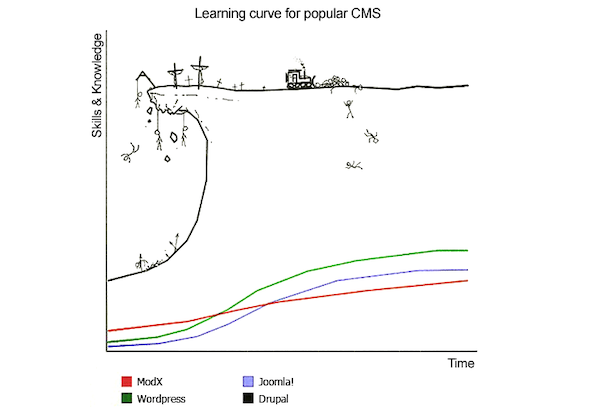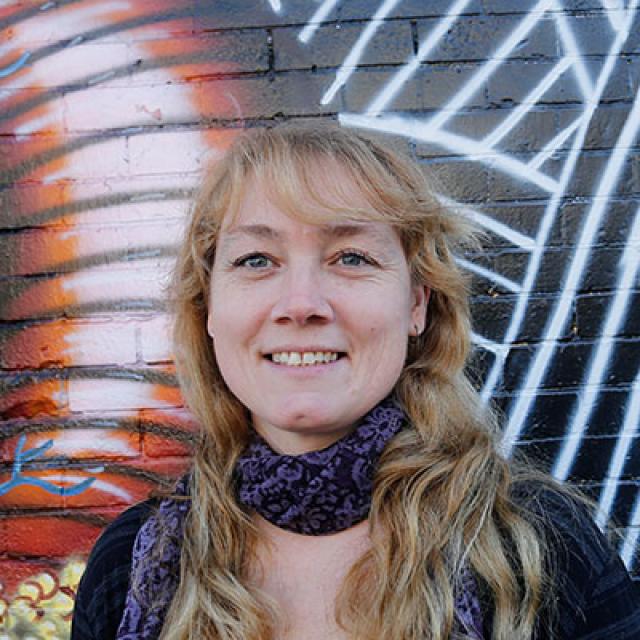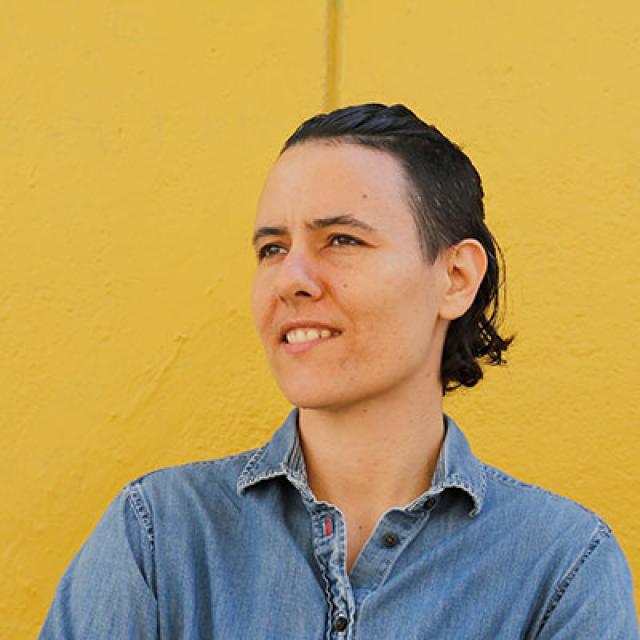From Nurse to Drupal Programmer: an Intern's Journey

Share
I have been a Palliative Care Nurse for a few years now. I like my job; actually, I love my job. People often ask me how I can work in a field as emotional as Hospice, but it’s always been a blessing for me. Being with someone as they pass offers a sense of purpose. I have always equated it to being a reverse-midwife: instead of delivering babies, I am delivering souls. There’s this one thing though: the poop. You know, the poop I find on my elbow at the end of my shift that didn’t come from me or one of my children, the poop that is on my shoes or scrubs that warrants just throwing my uniform away at the end of the day. And now Drupal. Why?
Drupal was the feel good adventure I needed to move on. Being open-source and free, it allows more organizations, like nonprofits and higher-eds to have custom websites built to their specific needs while maintaining smaller budgets. And, here I am, an intern working with Kalamuna, a Bay Area Drupal shop that focuses on doing work with some pretty rad clients. The transition from health-care provider to web coder was a little bumpy. Some of the hurdles left my calves bloodied and bruised, but I have learned some valuable lessons that will be useful for the next generation of Drupalistas.
Make First Contact
“Begin..the rest is easy.” I got that out of a cheap fortune cookie about 10 years ago. I still have it taped to my external monitor where I can see it every day.
My own introduction to Drupal was helping with content authoring and entry on BurningTokenRecords’ website. Next, I took on basic site building while helping my friend AimeeRae edit her book that focused on Drupal 8 Multilingual. With some not-so-gentle nudging and encouragement from my family and friends, I enrolled in an extensive three month course at Drupal Career Online taught by Mike Anello, the Drupal Easy podcast guy.
I am not going to sugar-coat the learning process. Drupal was harder to learn than I thought it would be. Much like the decision and process it took to become a nurse who specializes in hospice, I knew the road would be difficult, but the end result would be the reward. I utilized all the tools and resources: I attended DCO classes every week, went to lab hours, drove to Drupal meetups, and asked for help from peers and friends. After completing the initial 12 week course, I continued my education with Mike Anello and took some workshops on Module and Theme Development for Drupal 8. YIKES, definitely more intense than site building. At the end of it all, I was confident in my site building skills. I still had bunches to learn, but I could spin up a Drupal site using contributed themes and modules, and it even looked like a real website.
It Takes a Village: Attend Camps and Cons
Sitting in your p-jams learning to code can only get you so far, it really takes a village for a developer to become successful. I found that success through mentors and the “community.”
My first real exposure to the Drupal community, other than friends and family, was the Stanford Drupal Camp. Admittedly, when I was first invited to attend, I was apprehensive. I had a mere two weeks of DCO finished and all of the sessions, even those labeled as Beginner, seemed well above my current skill set. I didn’t even understand the session titles: Branch, twig, Birds of a Feather? I thought, isn’t this the internet? Not the wild kingdom?
Then there was DrupalCon NOLA. Having a bit more of DCO under my belt, I was less overwhelmed by the sessions and actually understood the titles and most of the jargon that had been foreign to me at Stanford Camp. Most important was the sense of community. I had felt it a bit back in California, but at DrupalCon it was intense and very exciting. People were inclusive and speakers talked of the importance of every role in a team’s success. And almost more importantly, how paramount it is to have more people become involved.
Stalk Potential Intern Employers Online
I stalked some Drupal shops online to see where I might want to intern. One of the shops I staked was Kalamuna, where I was eventually offered an internship. I looked at Drupal.org to see how important it was for them to give back to the community. I poured over their website’s team page and visualized working with them.

HAHA, look at their team page, they look like a group of fun people. Their client list seemed impressive: academic sites like UCSF and Kettering University, community projects and support for non-profits like CUESA…and look at their team page. Doing your homework on where you might want to work pays off. You want a good fit.
Try Not to Get Overwhelmed
Four programming languages in 4 weeks, what?!? I took the prescribed Codecademy classes and watched the Lynda videos series, probably understanding less than a quarter of the information I was presented with. My mind and my soul kept wondering what does all this code-y stuff have to do with Drupal? I thought I knew how to create views and content types and configure and set permissions, but the depth of Drupal’s functionality is immense, and from my beginner’s point of view, daunting. There was a lot to learn, but I had to take a step back and tell myself, even my mentors here at Kalamuna are friends with GOOGLE and Stackoverflow.
Admit When You Don’t Know What You Are Doing
Life as an intern got exponentially better when I admitted that I didn’t know what the hell I was doing. I spent a few weeks in a dark abyss, afraid to ask questions for fear that my mentors and trainers would see me as a fraud. I would look at assignments and not even know where to start, then I would take myself into the wrong direction and spend entirely too long at getting nothing accomplished. Once I asked the right questions and got clarification on the anticipated outcome of projects, my life became much lighter.
Be Accountable for Your Learning
It’s funny that admitting my naivety to the programming world gave me the confidence to be successful. That confidence allowed me to ask the right questions to my team, like “Who are you and what exactly does a director of user experience do?” But, more importantly I now had the sense that my learning was important, and that I needed to hold myself AND my trainers accountable for my schooling. Everyone is busy, but taking the time to ask questions saved time in the long run.
Katy Pool is Fantastic
For those of you who haven’t seen her in action, Katy Pool is great. She is a developer here at Kalamuna who is a big part of the support team and her mentorship keeps me going. My first few weeks, I shadowed her at the office and watched her work magic on support tickets. She is my go-to girl. She doesn’t always have the answer, but she will take the time to help me find a solution. She shares her stories of past failures and insecurities, which really helps me feel better; knowing that every great programmer was a beginner once. The white screen of death happens to all of us. Teamwork and comradery is important to the learning process, it re-iterates that sense of community that drew me to Drupal and ultimately to Kalamuna.
Drupal is Hard, But Don't Quit

We have all seen the image of the Drupal learning curve, precipice after precipice before success is felt. The “Kala-Training” outline is code intensive and I couldn’t understand why it was so important to Drupal, and then I had the AH-HA moment. The clouds lifted and the sun was warm as my brain finally understood how it all tied together. The moment of clarity was building template files and their relationship to each other, and to think a year ago I didn’t know what “php” or “js” even meant. It was at that moment, as I high-fived Katy Pool that I realized I need to celebrate the wins. As little as are, they are still wins.
Takeaways
Drupal and nursing share an important parallel: in both arenas we battle complex issues where teamwork is paramount. And in both, you’ve got to start somewhere, lean on others for knowledge, ask questions, be accountable, and never quit. I hope that the experiences I’ve shared will help newbies who are thinking about jumping on the Drupal train.







